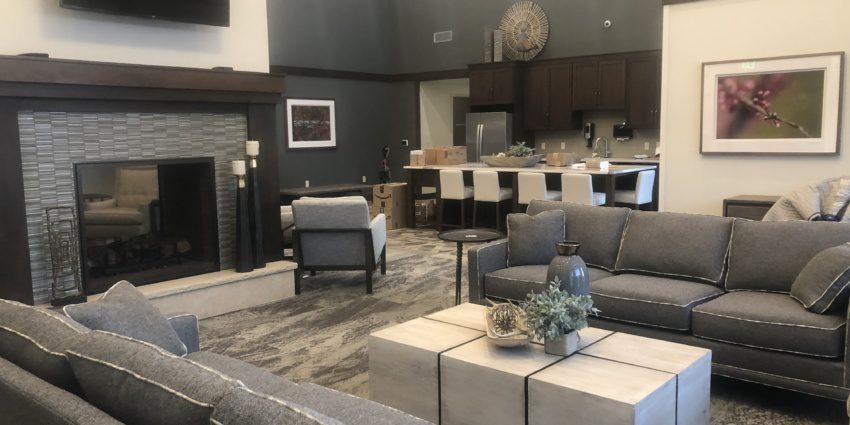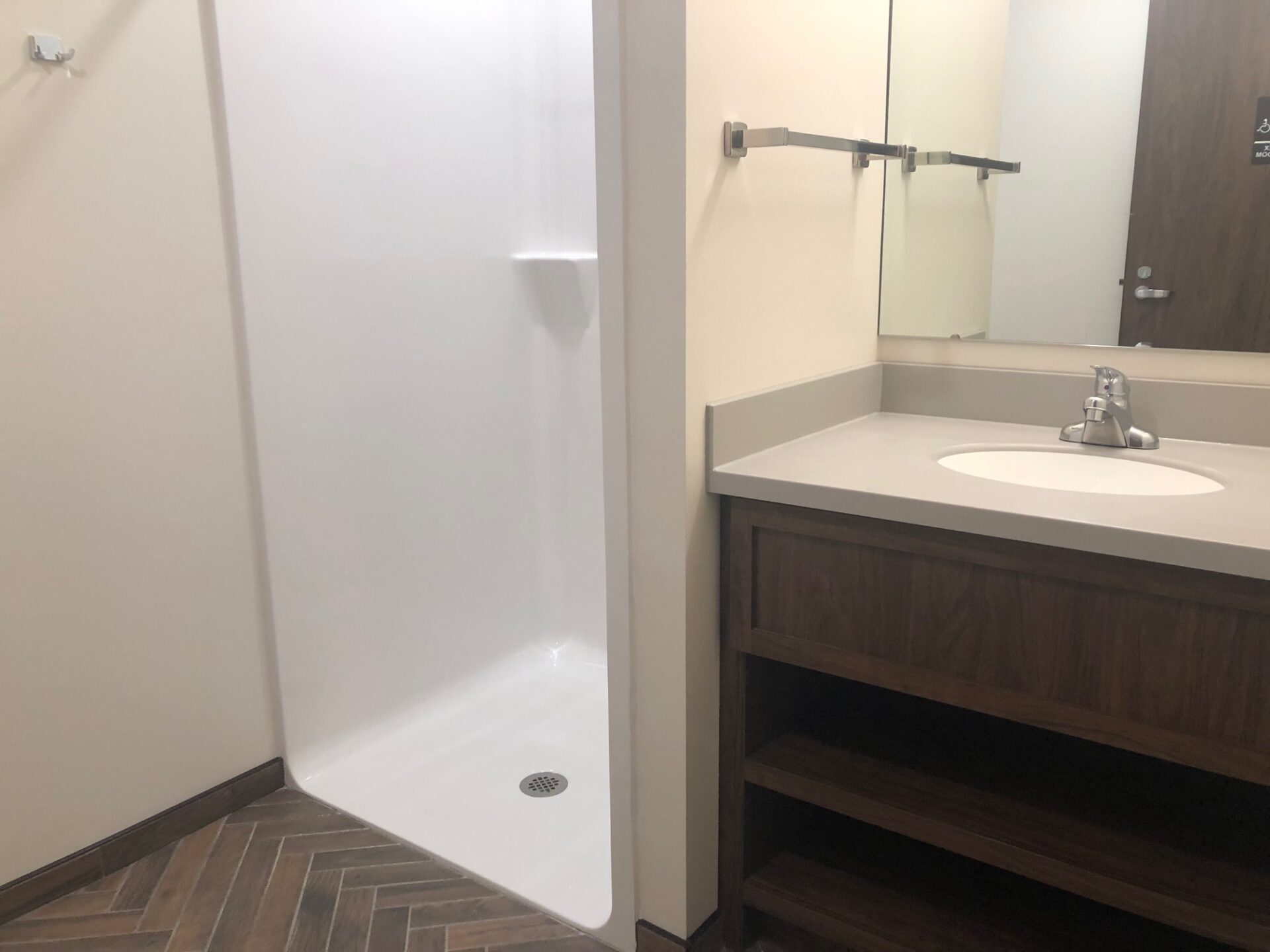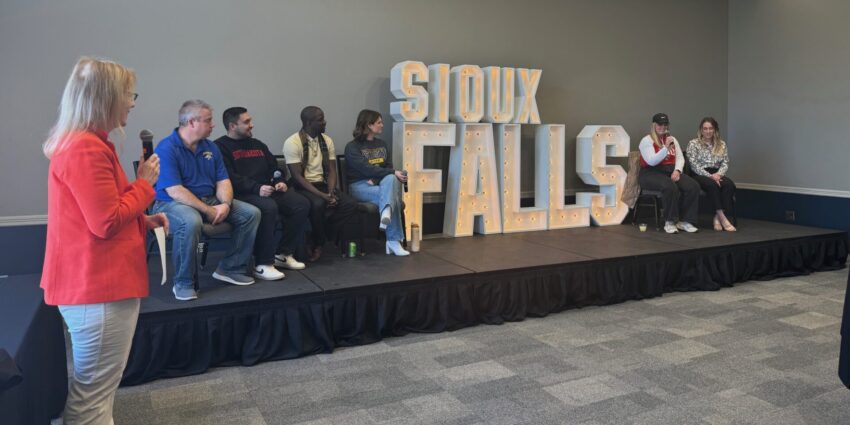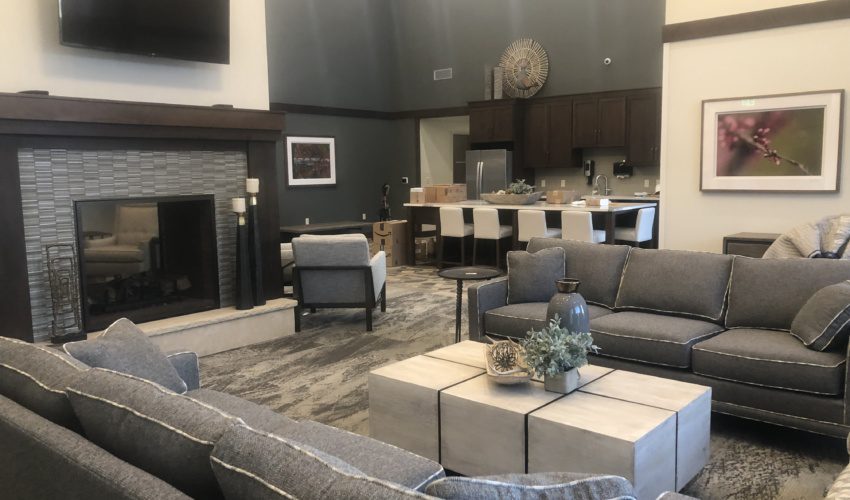Jodi’s Journal: Changing the conversation around addiction
Dec. 8, 2019
In the past month, South Dakota has gained international attention for a campaign about the state being “on meth” – an effort to generate awareness about drug addiction.
In the past week, the Minnehaha County state’s attorney resigned following a series of events that included a report with several mentions of alcohol abuse.
And this week, the first people to go through what typically is a 28-day program to address substance abuse will move into the newly built Avera Addiction Care Center.
That building could not open soon enough.
While the instances above might garner headlines and spark conversations, the real story is that substance abuse – and the mental health issues that often go along with it – is present in virtually all our lives. And it doesn’t get talked about enough.
In my native Ohio, I have watched opioids ravage the state. In 2017, there were 4,293 reported overdose deaths – a rate of 39.2 deaths per 100,000 people, compared with the national rate of 14.6, making it the second highest rate of drug overdose deaths in the country. That’s nearly a dozen people every day.
The epidemic is inescapable in that state. It has touched my extended family multiple times. I’ve seen the strength it takes someone to recover and the helplessness you feel when someone can’t.
But the truth is I’m willing to bet we’ve all been affected by substance abuse. I bet we all know someone, are related to someone, work with someone, who has struggled with alcohol, drugs or another addiction. We most certainly know someone with some form of mental illness, which often leads to substance abuse.
“One hundred percent,” agreed Dick Molseed, Avera’s executive vice president of strategy and governance.
Avera has been receiving calls daily from people wondering about using the center.
“At the public open house, there were multiple families talking about when they can get their loved ones in, and is there something we can do,” he said.
Molseed and I made an agreement back when we first announced this project that he would give me a tour when it was done, to highlight the extremely deliberative approach to putting this care center together.
“Everything is designed purposefully,” he said as we walked through the residential area of the center at Avera on Louise.
“We wanted their first impression to be residential feel and comfortable. Homey. Non-institutional.”
Residents will have medical evaluations and likely begin their stay in a medical bed where they can be stabilized as they stop using. From there, they progress to a small, private room that is intentionally designed with linens that feel like an upscale hotel but is tiny enough that residents won’t spend much time there.
The residents are segregated by gender because conversation tends to flow better that way.
There are areas for meditation, fitness and socializing. There is a spot where you can swing a golf club – and get used to doing so without drinking – and there are multiple gathering areas where you can get used to socializing without alcohol or drugs.
Residents will be given small chores and tasked with doing their own laundry, so that while they will be focused on recovering, they also will have to balance the stuff of daily life.
“You’ll need to keep your bathroom clean. Even though it’s a shared bathroom, that’s part of real life. And real life is you’re negotiating constantly with other people, your loved ones and people you’re working with,” Molseed said.
Avera was helped with the $8 million project by more than $1 million in donations, including from Lloyd Cos. co-founder Craig Lloyd.
“We all have employees and people we know who have addiction issues,” Lloyd told me. “Then I toured Hazelden with these guys, and I toured Mayo Clinic, and I got to know more about what really causes this. The more I learned a lot of it is a gene problem. And there’s a true need in Sioux Falls right now. Both hospitals are sending people to Hazelden and Betty Ford and other addiction centers.”
The only other inpatient center in South Dakota is Keystone in Canton. The Avera center adds 32 beds.
Lloyd and his friend Greg Sands helped raise many of the funds.
“It was more than relatively painless in my mind to raise the money,” Lloyd said. “You see the conviction and the love Avera has put into this, and it amazed me. The buildings are beautiful, the location is fantastic with all the medical programs around it, and the programming they’re putting into it is modeled after places that are world class.”
Sands, owner of Sands Drywall, has done a great service for Sioux Falls in talking about his own struggle with addiction that ultimately led to prison time for cocaine distribution.
Avera reached out to him several years ago in the planning stages of what became the Addiction Care Center.
“I realized how blessed I was because of how big they think,” he said. “I just think it’s the nicest treatment center I’ve ever seen in my life. And I’ve been all over. I’ve spoken to tens of thousands of people in treatment centers. And what drew me was teaming up with someone with the resources to create a world-class treatment facility. And this is going to be a world-class treatment facility.”
Thanks to their efforts and so many others, addiction recovery in this city now has a new address.
My hope is that because we will drive by this place, because we likely will eventually know someone who has spent time there, that we will begin to talk as a community about the paths that exist to recovery from substance abuse.
Maybe the many people out there struggling with substance abuse who don’t even require this level of intense treatment will reach out and be connected with their own life-changing resources.
Maybe there will be a little less looking the other way and normalizing activity that really should be taken as an indicator that someone needs help.
“We saw it 13 years ago when we built Avera Behavioral Health,” Molseed said. “That building and taking a new attitude toward mental illness helped change the dynamic and change the conversation in this region. And we think this will too.”











